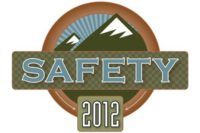 Project Safety Facilitator:
Project Safety Facilitator:
With the implementation of the CSP and other certifications, why are many safety professionals without proper credentials allowed to have the positions of directors and managers? I have a MS in EHS and experience and credentials, but I still encounter colleagues with only experience and they feel as though education in safety doesn't matter, because they've been doing safety for well over 20 years.
If that's truly the case, where's the professional development? Professionals with this mentality, really hurt our cause’ I have the passion, drive, and work ethic to attempt to understand this logic, however it's very challenging due to the fact that they're failing to fully understand safety as a profession.
Apparently, they missed the boat and various opportunities and failed to think outside of the box. In our profession, safety is always proactive, therefore if you don't have any formal education in this profession, you stagnate, and thus are reactive. You have to understand that safety will always be a continuous process. The professionals who missed this message surely doesn't understand Process Safety Management nor the management of change.
Manager of Safety and Loss Control:
If working ten years in the field were a prerequisite to getting a Masters Degree in a Safety discipline I would recognize professionals with education and credentials, since they would have the most important factor, experience. But just as I would not consider a medical school graduate that did not complete an internship a doctor, I do not consider someone, just because they have a degree, a professional.
In all arenas professionals both practice their specialty and pursue continuous education. If you were on trial for a serious felony that you did not commit you would choose an experienced criminal defense lawyer to represent you, not one that just passed the bar last week.
Safety Manager:
It might help to think of non-degreed or non-certified pros as having received a battle field commission.
Lacking the letters after your name isn't proof of a lack of professional development, there are many ways to learn the fundamentals of safety that don't result in any letters after your name, and having letters after your name is not proof that you know how to apply what you know in the field.
Would I prefer that those safety professionals who learned by doing the job for years received some formal education and elevated their knowledge of the science, administration, math, and psychology behind EHS? Sure it would be great in an ideal world. However it would also be fantastic if folks with a degree and a couple letters after their name would recognize that the experience of working your way up through the ranks from EHS team member, to part-time EHS technician, to full-time EHS Technician, to Site EHS manager, is simply another route.
What if I were to call into question the equivalency of a degree earned online and through correspondence courses and one earned by actually physically attending a university?
I think it is a trap we are all capable of falling into to elevate the path we took to get where we are over the path that other people took to get to the same place. Safety professionals are not clones of each other, there isn’t a single pathway they must all come through.
HSSE Training Coordinator:
In Canada requirements to get certification is to accomplish number of courses. So if a person took enough training, he or she can apply for certification. The difference for the employer is that if somebody has letters behind name, it proves that person has some training. Does it go with how person will prove himself/herself in the field? No. Most of the construction safety associations in Canada have a requirement that the person applying for certification have at least two or three years of construction experience. It puts together requirement of hands-on field experience and requirement to obtain minimum safety knowledge. Goes hand in hand.
Health & safety environmental technician:
I have seen many people who are bachelor qualified but do not know how to do the job as the workers or know how to talk to the operators on why they do it that way. Just because you have a university degree does not make you a good safety professional; you actually lower the people who have done the hard yards as operators and have gone forward. I can walk into mines in all states in Australia and some in Ghana as well as Indonesia and earn workers’ respect as I know what they are talking about and when I say something important they listen to me. And I talk the language as an operator and know why they do things sometimes from the pressure of management and supervisors. Experience does go with respect and makes it being earned, not just a piece of paper
Project Safety Facilitator:
There are some great experienced professionals without credentials. In order to obtain the CSP, you have to have a degree and verifiable experience. Therefore, the alphabets behind your name do make a difference. If there are some safety professionals without professional development and they have been in this profession for 20 and 30 years, then maybe they need to obtain the education requirements to compete within this profession.
Degrees provide more income and as a HR professional that lets us know that the candidate with the degree is cognitive and able to display critical thinking. As safety professionals, we shouldn't discredit education. Safety is constantly changing and it certainly requires specials skills to excel in it. I work in a construction environment and the management where I work is older and they aren't computer savvy. They are somewhat behind in operating as efficiently as they could, due to the fear of technology and computer programs that will allow them to save time, which in turns, saves money. Just because they have experience, doesn’t mean that a new graduate couldn't perform their administrative duties more effectively and efficiently. In this profession, it's a balance, but eventually, the educated professional will dominate this profession.
Professional, Experienced Office Manager:
I have a somewhat different perspective. I have attended some college but never had the money or time to complete a degree because I am a parent and my spouse is disabled. In addition I have switched career paths from Child Development to Social Services and then into Manufacturing. Being in the first two careers, we focused on safety constantly so by the time I got into mfg. it was already ingrained in my thought process. While in mfg. I was asked to take on some safety responsibilities and found I enjoyed it immensely. I took it upon myself to take courses that would directly help me learn the basics of OSHA requirements and prevention of accidents, including employee engagement. I had a great deal of success lowering our incident rate significantly (from 12 accidents two years in a row to two accidents the third year) and ultimately took 30-Hour OSHA general industry training. I am now unemployed and am having great difficulty finding any opportunity to again work in the safety field even with some education and seven years of experience as a safety manager. It is very frustrating to not be considered simply due to not having the letters behind my name. I am willing to work on the educational aspects but without any income that is proving exceptionally difficult.
Project Safety Facilitator:
I fully understand you dilemma, however your testimony supports the topic. This career field will eventually become saturated and in order to remain competitive, one must have the education to remain viable in this profession. No one ever stated that life was going to be easy, struggle builds character. I commend you on sharing your story with the group. You have your sights set on the goal, now all you have to do is make it happen. Where there's a will, there's always a way. Ambition and determination will make achievement of this goal more rewarding. Anything worth having is worth fighting for and making the sacrifice to achieve it. There are options that you can pursue to achieve this goal.
Deputy Director of Emergency Management:
I had a college intern work with me this past summer. His quote, "Sir, I learned more from you in three months than I did during my last three years of college."
Got me thinking ... are college students truly learning "critical thinking."
Project Safety Facilitator:
As the Project Coordinator of the Prevention through Design initiative, I wrote training materials for undergraduates. In my opinion, the best safety education would combine training in observation with training in safety theory and procedures. The shop and field environments contain many hazardous distractions.
Site Administrator:
Having worked in many different fields I can truly say that a graduate of schooling with NO practical experience is at a serious disadvantage in actually understanding what the challenges workers face on the job. For instance would a purely educated person understand the challenges of an Excavator Operator? Or the stresses of a Health Care Professional? How about understanding the dangers of working in the Oil Sands? Construction? Working at an Airport??? Theory is good but practical is likely more important.
Sure, having the education behind you will open your mind to different solutions that one many not be aware of, and present the EHS professional with a formal study of the laws and regulations for the country you live / work in.
But without that all-important practical experience one will fail at their chosen career. You just can't have one without the other - and you just can't learn that practical experience in one semester, it takes years to understand and learn the challenges of many complex work environments, such as a construction site where you not only have to be aware of ergonomics and labour laws, but also the safe use of all that equipment. This is no different from any factory or office - a work environment is a living entity and to say formal education or practical experience is more important just isn't so. You just can't have one without the other and be a highly skilled professional.
Environmental, Health & Safety (EHS) Specialist:
What it takes to be called a professional in any given field, to me is much more than having diplomas and certificates. What diplomas and certificates do at most is to show that one has acquired a certain body of knowledge in a given field through training. They are not meant to be the (sole) proof of competence, and they can never be.
Having a degree in safety without any experience means you have just started your journey of becoming a safety professional. From what I have seen in the field so far, there is no substitute for experience, and I would hardly consider myself an EHS professional without several years of experience in the field, despite having acquired degree and certificates in environmental engineering and H&S.


